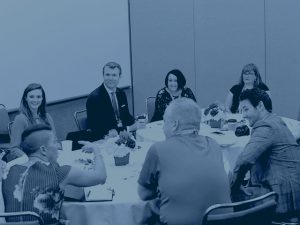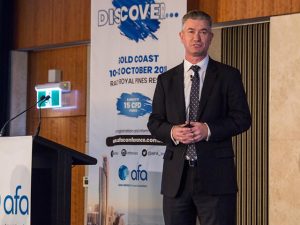Chris Unwin draws on his experience as a highly successful risk adviser to share two more great tips from his ‘Chrisisms’ series that cover opportunities associated with delivering intergenerational advice and the psychology of objections...
Intergenerational Advice

Have you ever heard an adviser say something along the lines of “Well, insurance is not really relevant for most of my clients, because most of them are pre or post retirees”? If you have – or if you’ve even said something similar yourself, then read on…
Can you spot the major flaw in the statement above?
If you were to ask a retiree the question:- “ What do you consider to be the single biggest financial risk that you face in your retirement?” or “ What do you think is the single biggest threat to your retirement nest egg?”, I guarantee that the large majority of retirees would answer one of the following :-
- Investment risk
- Market Risk or
- Another GFC
Would they be right? Absolutely not
We need to educate our retiree clients that by far and away the biggest threat to their retirement nest egg is if serious illness, injury or death were to strike a retiree’s child, grandchild or spouse thereof without proper protection being in place. What financial impact would such an event have potentially on your clients’ retirement nest egg?
Well, who do you think will be expected/required to fund the financial shortfall that this situation would create? You guessed it – the retirees! And what could this shortfall amount to? As a bare minimum, we would be talking about the injured/dead breadwinner’s income (possible on an ongoing basis) or the mum/homekeeper’s E.R.V. (Economic Replacement Value) again possibly on an ongoing basis – and this takes no account of other potential medical or capital expenses.
Once you have made your retiree client aware of this potential exposure, I would ask the question:- “ Tell me, in this scenario, would you rather fund the potential financial shortfall yourself out of your retirement nest egg or would you rather pay a small premium (which would have absolutely no impact on your retirement nest egg) to a life company so that the life company can fund the financial shortfall instead?
I believe this simple client engagement piece will more often than not open the door to at least meeting with the kids and/or grandkids, and although there would be no reason why they should not fund their own personal protection package, in a worst-case scenario, you know the retirees would be prepared to pay the premiums.
This simple strategy also results in an FYCB (For Your Clients’ Benefit), namely an appropriate personal protection package for all eligible children, grandchildren and spouses as well as an FYOB (For Your Own Benefit), namely you turn a shrinking business (as most of your clients are in draw down phase) into a stable or even better a growing business by bringing wealth accumulators into your client base.
The Psychology of Objections

Do you ever wish you could close more business without having to handle any objections along the way? If so, be careful what you wish for!
Most advisers I know would love to be able to make appointments and complete business without having to handle clients’ objections and overcome resistance. Understandable though this may be, it is important to embrace the mindset that objections are a positive sign and that handling them in your stride is just a necessary stepping stone on the way to doing business.
What we need to remember is that it is human nature to resist commitment – especially commitment to time or money, which is a bit inconvenient for us, isn’t it, because when we are looking to make an appointment we are looking for a commitment to someone’s time and when we are looking to do business, we are looking for a commitment to someone’s money! So, we really shouldn’t be surprised when we get objections. Indeed, we should regard objections as a positive sign and therefore welcome them and regard them merely as obstacles that need to be removed on the way to getting a result.
One distinction that we need to make is between objections and conditions. Understanding the difference is crucial to our mindset when tackling client resistance. The fundamental difference between the two is that conditions are reasons why business cannot be done (e.g. bankruptcy or impending death!) whereas objections are hurdles that need to be overcome on the way to doing business (i.e. everything else!).
Typically, there are 5 main reasons why clients raise objections and in turn 5 courses of action on our part depending on which of the 5 reasons the particular objection represents. The reasons and courses of action are as follows:
|
Reasons for Giving an Objection |
Appropriate Action |
| A need for more information | Provide the information |
| A genuine belief | Educate |
| To put you to the test | Take it in your stride |
| A search for reassurance | Reassure – focus on the benefits |
| A smokescreen |
Dig deeper |
The reality is that the smokescreen is the most common thing that an objection represents because 90% of all client resistance has to do with the premium or the cost, but it will be expressed as something else because the client is loath to make affordability the main problem. For this reason, handling objections is a little bit like eating an apple i.e. taking bites from the outside in order to get to the core i.e. the cost.
There are only a finite number of objections either to making an appointment or doing business, so make sure that you have at least one way of handling all of the possible objections you may get, so that you can do so in a matter of fact way and with a smile on your face and remember:- once you have handled the objection, ask for the appointment or the business; otherwise you will probably get another objection!

Chris Unwin is a financial adviser of 37 years standing and has been a specialist risk adviser for the last 22 years. His training and consulting business has operated for 12 years and it specialises in helping advisers across the full spectrum of experience with their client engagement skills, both in the risk advice specific space as well as in the more generic soft skills space.
…And if anyone would like to receive Chris Unwin’s Chrisisms on a fortnightly basis, just email him with your details, including the state in which you reside.
Contact or follow the author: Telephone: +61 417 281 034 | Website | Email | LinkedIn










